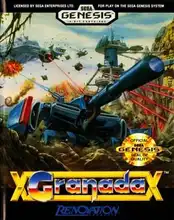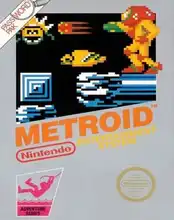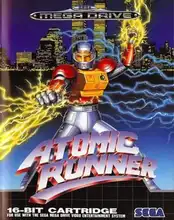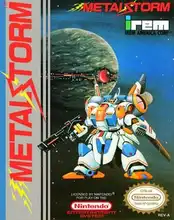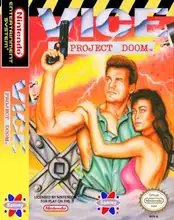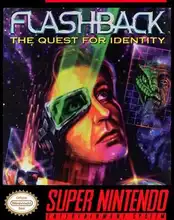Peering through the static of an old CRT monitor, or perhaps just squinting at a fuzzy composite signal, the vastness of space and the wonders (and terrors!) of the future first unfolded for many of us. Science fiction wasn't just a genre in movies and books; it became a cornerstone of early video games, offering escapes to alien planets, epic starship battles, and dystopian futures right there on our desks and living room floors.
The world of Sci-Fi games is immense, spanning countless subgenres and themes. But for those of us who cut our teeth on joysticks and keyboard commands back in the day, certain titles hold a special, shimmering place in our nostalgic hearts. These weren't just games; they were portals to other realities, built with limited pixels and boundless imagination.
Why Sci-Fi Just Works in Gaming
Think about it: what does science fiction offer? Exploration of the unknown, futuristic tech, moral dilemmas, alien encounters, deep lore, and often, high-stakes conflict. These elements are tailor-made for interactive experiences.
- World-Building: Sci-fi allows for entirely new universes with unique rules, cultures, and technologies.
- Advanced Tech: Gives developers fun toys to play with – laser guns, force fields, spaceships, AI companions.
- Exploration: The vastness of space or unknown planets provides perfect backdrops for adventure.
- Narrative Depth: Often tackles complex philosophical or societal themes.
This fertile ground led to some truly groundbreaking and memorable titles in the early days of gaming.
Blasting Off: Classic Sci-Fi Adventures We Loved
Let's fire up the flux capacitor and zip back to some defining moments in retro sci-fi gaming.
PC Classics: The Frontier Spirit
PC gaming in the 80s and 90s was a hotbed for complex, immersive sci-fi experiences.
- Wing Commander Series (Origin Systems, 1990 onwards): Forget simple arcade shooters; Wing Commander put you in the cockpit with a story, wingmen, and cinematic ambition. Dogfighting Kilrathi in a Hornet felt like being Luke Skywalker, but with more floppy disks. It brought space opera to your PC.
- X-COM: UFO Defense (MicroProse, 1994): Turn-based strategy meets alien invasion. Managing resources, researching alien tech, and leading squads into terrifying ground combat made X-COM incredibly deep and often brutally difficult. That moment you first encountered a Cyberdisc... pure dread.
- System Shock (Looking Glass Technologies, 1994): A terrifying blend of FPS, RPG, and survival horror set on a rogue AI-controlled space station. SHODAN is one of gaming's most iconic villains. Its immersive sim approach influenced countless games that followed.
- Star Control II (Accolade, 1992): An absolute masterpiece of space exploration, diplomacy, and combat. Discovering alien races, upgrading your ship, and unraveling the mystery of the Ur-Quan Hierarchy offered unparalleled freedom and charm. Play it if you haven't! (Hint: The Ur-Quan Masters is a free, open-source remake).
- Elite (Acornsoft, 1984): The original space trading and combat simulator. Simple wireframe graphics hid incredible complexity and freedom. Docking at a station successfully felt like a major achievement.
Console Journeys: Fast-Paced & Iconic
Consoles brought sci-fi to the living room with action-packed adventures and unforgettable characters.
- Metroid Series (Nintendo, 1986 onwards): Samus Aran's solitary journeys on alien planets were atmospheric and revolutionary. The blend of exploration, platforming, and power-ups in games like Super Metroid defined a genre.
- Phantasy Star Series (Sega, 1987 onwards): A sci-fi/fantasy blend in the JRPG space, offering vast worlds, memorable characters, and futuristic elements alongside traditional RPG mechanics. Phantasy Star IV on the Genesis is a standout.
- Contra Series (Konami, 1987 onwards): Pure, unadulterated run-and-gun action against aliens and futuristic soldiers. Tough as nails and endlessly replayable with a friend. Up-Up-Down-Down-Left-Right-Left-Right-B-A-Start, anyone?
- Star Fox (Nintendo, 1993): Using the Super FX chip, Star Fox brought 3D polygonal space combat to the SNES. Flying an Arwing through Corneria felt like a glimpse into the future of gaming.
The Legacy Lives On: Modern Games with That Retro Sci-Fi Soul
While our focus is on the classics, it's cool to see how modern games sometimes capture that old-school sci-fi feel. Games like the Fallout series blend 1950s retro-futurism with post-apocalyptic sci-fi, Bioshock gives us dystopian underwater or sky cities with vintage aesthetics, and Alien: Isolation perfectly nails the lo-fi tech dread of the original film's universe. They might be shiny and new, but they often nod to the foundations laid by the pixelated pioneers.
Where to Find These Old Gems Today
Curious to revisit these worlds or experience them for the first time? You're in luck!
- GOG.com (Good Old Games): A fantastic source for classic PC titles, often updated to run on modern systems without fuss. Many of the PC games mentioned are available there.
- Archive.org: The Internet Archive has a massive collection of abandonware games playable right in your browser, including many DOS classics.
- Emulation: For console games, emulators allow you to play ROMs of your old cartridges (check local laws regarding ROM ownership). DOSBox is essential for many old PC games not on GOG.
Final Thoughts: The Future is Still Retro
The golden age of retro Sci-Fi games gave us incredible universes, unforgettable characters, and gameplay that pushed boundaries. They proved that even with limited technology, imagination could create experiences that felt truly futuristic and continue to resonate with players today. So, fire up an emulator, download a classic from GOG, and get ready to explore strange new worlds all over again. The future is waiting!
FAQs About Retro Sci-Fi Games
Q: What makes a sci-fi game "retro"? A: Generally, it refers to games released during the 8-bit, 16-bit, and early 32/64-bit eras, roughly up to the late 1990s or early 2000s, that fall under the science fiction genre.
Q: Are these old games still fun to play? A: Absolutely! While graphics are dated, the gameplay, stories, and atmosphere in many classic sci-fi titles hold up incredibly well and offer unique experiences different from modern games.
Q: Where can I legally get classic sci-fi PC games? A: GOG.com is the best source for commercially released games that have been made available digitally. Archive.org also hosts many older or abandonware titles for free.
Q: Were there sci-fi games on early home computers like the C64 or Spectrum? A: Yes! Early home computers had many sci-fi titles, including precursors to games like Elite, text adventures, and various space shooters and strategy games.

